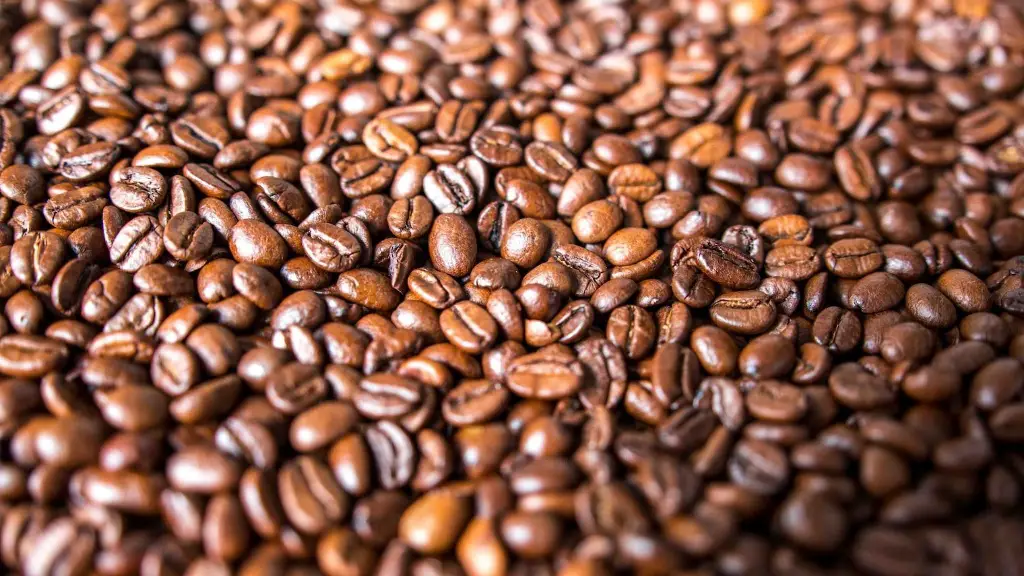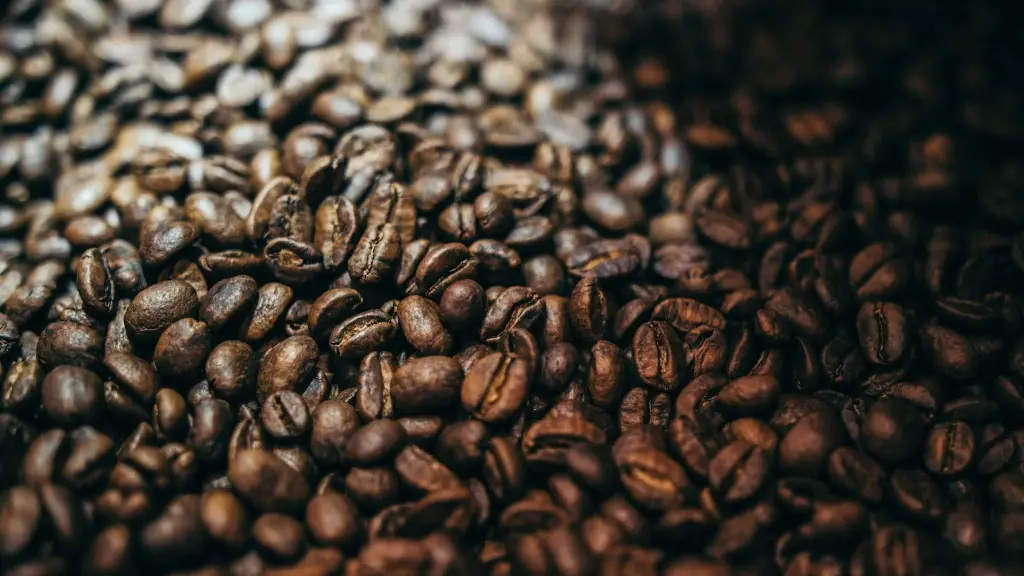Most people know that coffee with milk is a common drink, however a lot of people are wondering whether or not it is possible to combine coffee and milk during a fasting period. This can be a tricky question to answer as fasting techniques vary from person to person.
It’s important to understand the approaches that people take to fasting before attempting to solve the question of whether or not coffee with milk can be safely consumed whilst fasting. Intermittent fasting, for example, is a type of fasting focused on certain eating times during the day and night, generally consuming three meals between 8-12 hours. As this type of fasting is focused on meal times and periods rather than specific foods, adding milk to coffee would not be considered breaking the fast.
Contrastingly, the traditional fast which is focused on not consuming any food is perhaps the method of fasting which comes closest to the idea of a cleanse. As this method entirely eliminates the consumption of anything solid or liquid, adding dairy to coffee would therefore be breaking the fast.
Arguably, one of the most popular methods of fasting is the 16/8 regime. This type of fasting uses an 8-hour eating window and a 16-hour fasting window. Some people are able to tolerate having small amounts of calorie-free beverages during the fasting window, so it is possible to have a cup of coffee with a small amount of full-fat dairy during this fasting window. It is important to note, however, that despite having a small calorie load, the act of consuming any type of solids or liquids during the period should not be encouraged as it can hinder the process.
Coffee and milk, consumed in moderation, can be beneficial during fasting. Coffee boosts energy, increases mental alertness and increases the metabolism, all of which can be beneficial for people who are fasting as it helps to produce more energy for the day. Milk itself can also provide a great amount of nutrition, containing hundreds of essential components, such as calcium, Vitamin E, protein, unsaturated fats and carbohydrates.
It is important that, regardless of fasting methods or any other methods or strategies that someone may choose to consume coffee and milk, they should be aware of their dietary intake and nutritional reasons for doing so. Coffee has a high caffeine content and people should be aware of the potential consequences of higher caffeine intakes, as it can contribute to nervousness, difficulty sleeping, and headaches if taken in excessive amounts. Similarly, if dairy is added to coffee it should be done in moderation and with an awareness of the current nutritional objectives.
Consumption of Caffeinated Drinks on Fasting
The consumption of caffeinated beverages during a fasting period is a highly controversial and subjective matter which has only recently become a topic of conversation amongst health professionals. Generally, most health professionals agree that caffeine intake itself should not be restricted and should in fact be encouraged to some degree. Coffee can enhance physical and mental performance, improve alertness and help with relaxation, and the impact of caffeine ingestion during a fasting window should not be underestimated.
However, the type of coffee one consumes and the amount of caffeine in the milk can vary widely. Certain types of coffee, for example, can be very acidic and can interfere with digestion, so it is important to pay attention to the quality of the coffee as well as taking into account the amount of milk that is used. Some experts suggest having a cup of decaffeinated coffee with milk during a fasting period, as it is low in calories and does not interfere with digestion.
In summary, coffee with milk can be consumed in certain types of fasting regimes. However, it is important to consider the type of caffeine intake, the quality of the coffee, the amount of milk consumed, and the effect it may have on digestion.
Expectations and Benefits of Fasting with Coffee
When considering the question of drinking coffee with milk while fasting, it’s important to have realistic expectations. While coffee with milk can provide an energy boost, it will not provide long-term fuel or lead to serious benefits if not consumed responsibly. As previously mentioned, the amount and kind of milk or caffeine should be taken into consideration when developing a fasting regime.
When done responsibly, however, drinking coffee with milk during a fast can be beneficial. The acidity of the coffee can help to flush out toxins from the body and the caffeine can give a boost in energy for those on a fasting regime. Moreover, the nutrients and vitamins in milk can help to provide energy, speed up metabolism and keep the appetite suppressed for those who practice intermittent fasting.
It is important to be mindful of any allergies or intolerances one may have during this period – particularly those who may be lactose intolerant. Those who are taking medications should also be aware of the potential interactions that coffee can have with these.When taken in moderation and responsibly, however, coffee with milk can be beneficial to those who are fasting.
Impact of Caffeine Intake on Fasting
Although there may be some benefits to consuming coffee with milk during a period of fasting, there is also a potential downside in the form of increased caffeine consumption. Caffeine is a stimulant, and too much of it can lead to symptoms such as difficulty sleeping and nervousness. Therefore, it is important to be conscious of the type and amount of caffeine one consumes during a period of fasting.
In addition to this, those who are especially sensitive to caffeine should avoid or limit their consumption of coffee during a fasting period. Caffeine can also increase heart rate and blood pressure, which could lead to feeling faint or light-headed. Moreover, it can interfere with the body’s digestion by disrupting the normal metabolism rate and increasing the absorption of vitamins and minerals.
In conclusion, it is important to be mindful of caffeine consumption during a period of fasting and to be aware of the impact it could have on the body. By understanding the types of fasting regimes, the amount of caffeine and dairy one consumes, and the potential impact it might have, one can make an educated decision on whether or not to consume coffee with milk during a period of fasting.
Nutrition and Health Implications of Coffee with Milk Fasting
When considering the question of coffee with milk during a period of fasting, nutrition and overall health implications should also be taken into account. Both coffee and milk contain vitamins and minerals, such as calcium, magnesium and potassium, which are essential for bone health and can help to regulate bodily functions such as heart rate, muscle movement, digestion and sleep.
Nevertheless, coffee and milk can also lead to unhealthy weight gain if consumed in excess. Full-fat milk can contain large amounts of saturated fats, and too much coffee can contribute to a high-calorie diet. Therefore, it is important to consider the nutritional content of the coffee and milk, as well as the potential long term health implications.
Furthermore, some experts suggest that coffee with milk should not be consumed during periods of fasting due to the potential increase in cortisol levels. Cortisol is a hormone which regulates metabolism and energy levels in the body, and too much of it can lead to increased stress, fatigue and decreased immunity. Therefore, it is important to be mindful of this before deciding to consume coffee and milk during a fasting period.
Expert Perspective on Fasting with Coffee
Before making any decisions on the consumption of coffee with milk during a fasting period, it is important to consult with a health expert. The effects of fasting on an individual’s health and well-being can vary widely, and it is important to understand the implications of and potential risks associated with this type of fasting. Health experts can offer advice on the best course of action for someone who is considering fasting with coffee.
Moreover, health experts can provide unique insights on the potential health benefits that can be gained from fasting with coffee. Many experts suggest that fasting with coffee can help to reduce inflammation and manage blood sugar levels, as well as potentially promoting weight loss. However, it is important to understand the individual’s health history, goals and objectives before making any decisions.
In short, taking into account the potential effects of coffee with milk during periods of fasting is essential before making any decisions. Fasting with coffee can be beneficial, but it is important to understand the potential risks and long-term health implications that can come with this approach.





